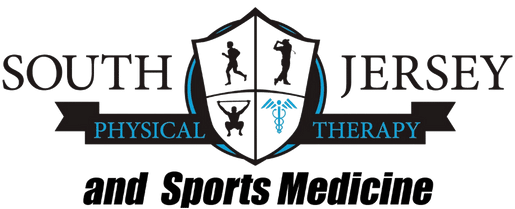Whether you’re a dedicated athlete, weekend warrior, or someone who simply enjoys staying active, you’ve likely felt the tug-of-war between pushing your body and protecting it. Recovery and injury prevention aren’t just buzzwords—they’re the foundation for long-term movement, strength, and confidence in your body.
In this blog, we’ll walk through proven recovery strategies and smart injury prevention techniques to help you stay active, avoid setbacks, and enjoy everything from workouts to daily life pain-free.
Why Recovery Matters More Than You Think
Let’s start with the basics. Recovery isn’t just what you do after activity—it’s what determines whether you can stay active at all.
When you move, lift, stretch, or train, your muscles undergo microscopic tears. This is normal. But without proper recovery, those small breakdowns compound into inflammation, stiffness, and potential injury.
Recovery gives your body time to:
- Repair and strengthen tissues
- Replenish energy stores
- Reduce inflammation
- Prevent overuse injuries
The Consequences of Skipping Recovery
Without adequate recovery, you risk:
- Decreased performance
- Chronic soreness
- Mental burnout
- Long-term injuries like tendinitis, plantar fasciitis, or stress fractures
If you’re nodding along because you’ve been there, you’re not alone. But there’s good news—recovery is within your control.
Recovery Strategies That Actually Work
Let’s break down a few strategies you can start using right now to feel better, recover faster, and prevent setbacks.
1. Active Recovery
This doesn’t mean lying on the couch all day. Active recovery includes low-impact movement like walking, swimming, or gentle cycling. It increases blood flow, which helps muscles heal more efficiently.
Tip: After an intense workout, do 20–30 minutes of low-intensity movement the next day.
2. Stretching and Mobility Work
Tight muscles are often the root cause of pain. Stretching helps lengthen muscles and prevent imbalances, while mobility work improves joint range of motion.
Try This: Incorporate 5–10 minutes of foam rolling and dynamic stretching pre-workout, and static stretching post-workout.
3. Hydration and Nutrition
Water is critical to tissue repair and nutrient delivery. Protein, healthy fats, and anti-inflammatory foods like berries, leafy greens, and turmeric support healing.
Reminder: If you’re exercising frequently, aim for more than just 8 glasses a day—your body’s needs increase with sweat loss.
4. Quality Sleep
Sleep is where the magic happens. During deep sleep, growth hormone is released, which promotes tissue repair. Less than 7 hours? You’re risking more than fatigue.
Goal: Get 7–9 hours of uninterrupted sleep to optimize your body’s healing process.
5. Ice and Heat (At the Right Times)
Use ice for inflammation and acute pain. Use heat for muscle tension and chronic stiffness. Don’t overdo either—10–15 minutes is usually enough.
Smart Injury Prevention Techniques
Now that we’ve covered recovery, let’s shift to prevention—because the best injury is the one you never get.
1. Warm Up with Purpose
Walking into a gym or spin class and jumping into a workout cold is like slamming a car into gear before turning the engine on.
Warm-Up Tips:
- 5–10 minutes of light cardio
- Mobility drills for hips, shoulders, or spine
- Gradual increase in intensity
2. Balance Your Workouts
Repetitive movement (like only running or cycling) can create imbalances. Cross-training helps balance muscle use and reduces the risk of overuse injuries.
Strategy: Add variety to your week—strength training, yoga, swimming, or walking are all great complements.
3. Listen to Your Body
Pain is a message—not a weakness. Sharp, stabbing, or prolonged discomfort is your body asking for attention.
Rule of Thumb: Discomfort that changes with movement can often be managed. Pain that lingers or worsens? Time to get evaluated.
4. Use Proper Technique
Most injuries happen not because of the movement itself, but because of how it’s performed. Proper form preserves joints and distributes load safely.
Suggestion: Work with a movement expert (like a physical therapist) to correct mechanics and avoid wear-and-tear.
5. Rest is Not a Bad Word
You don’t get stronger during workouts—you get stronger during recovery. Rest days aren’t lazy days. They’re a vital part of your long-term training plan.
How Physical Therapy Supports Recovery and Injury Prevention
Physical therapy isn’t just for people in pain—it’s for people who want to stay out of pain.
Whether you’re dealing with a specific injury or just want to move better, a PT can:
- Identify hidden imbalances or movement faults
- Design recovery routines tailored to your body
- Provide hands-on care (like manual therapy, dry needling, or soft tissue work)
- Keep you doing the activities you love without setbacks
At South Jersey Physical Therapy, our approach is simple: we help people move better, feel better, and live stronger—without surgery, pills, or band-aid fixes.
Real-Life Recovery Story: “I Thought My Cycling Days Were Over…”
A client recently told me, “Ken, I thought my cycling days were behind me. Every time I got on the bike, my knee flared up.”
We ran a movement assessment, uncovered a hip stability issue, and created a targeted recovery and strength plan. Four weeks later, he was not only back on the bike—but riding stronger and longer than before.
Recovery and prevention are possible with the right guidance.
Small Steps Lead to Big Results
You don’t have to overhaul your routine overnight. Start small:
- Add a warm-up before your next workout.
- Take a walk the day after intense activity.
- Stretch while watching TV.
- Swap one processed meal for whole foods.
- Prioritize just 30 minutes more sleep tonight.
Consistency—not perfection—is what keeps you moving forward.
Ready to Take the Next Step?
If you’ve been battling soreness, unsure how to prevent injury, or want to make sure your summer training plan doesn’t backfire—we’re here to help.
📍 Book your FREE Discovery Visit at South Jersey Physical Therapy.
During your visit, we’ll:
- Listen to your story
- Assess your movement
- Show you what’s really causing discomfort
- Create a plan to help you recover smarter and move with confidence
👉 Spots are limited. Call (609) 845-3585 or visit https://info.southjerseypt.com/discovery-visit to claim your free session.
Let’s help you recover better, move freely, and enjoy a stronger, pain-free life—starting today.


